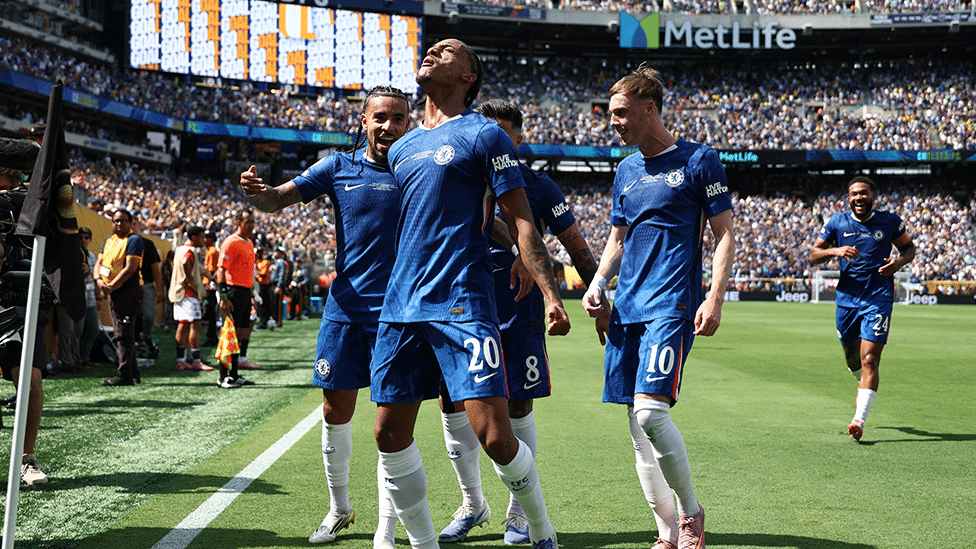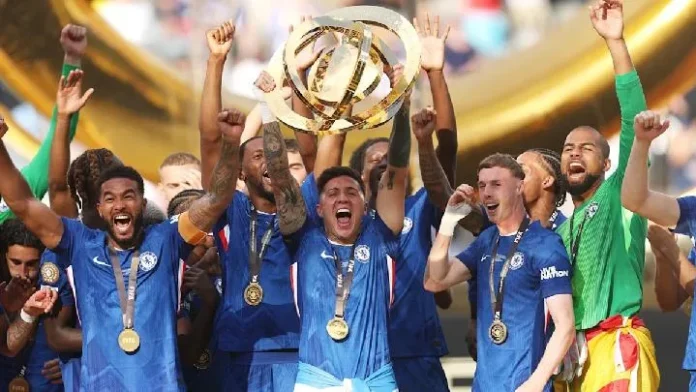Cole Palmer Leads the Charge
Cole Palmer set the tone from the start as he found the net twice before half time, and then crafted the third goal with a precise pass for João Pedro’s finish, showcasing his knack for delivering in big games and proving why he has become Chelsea’s focal point in attack.
With each touch he controlled the rhythm, and each movement he made unsettled PSG’s back line, and this level of influence at such a young age underscores his rise to stardom. Moreover, his ability to link play and his sharp decision making gave Chelsea the upper hand, and by scoring the opener in the final, he forced PSG to chase the game on tough ground in North America where heat and humidity tested both sides.
João Pedro’s Seamless Debut Impact

João Pedro arrived at Chelsea mere days before the tournament yet he adapted instantly, and his two goals in the semifinal against Fluminense demonstrated both his finishing skill and poise under pressure. In the final he showed the same composure by meeting Palmer’s assist with a composed strike into the corner, and his willingness to pay respect by not celebrating against his boyhood club spoke to his maturity.
Next he linked effectively with his teammates and continued to press PSG’s defence, and that added intensity forced errors that Chelsea turned into scoring chances. His transfer from Brighton & Hove Albion looks smart as he added an unpredictable dimension in the attacking third and helped secure silverware at the first attempt.
Maresca’s Rotation Strategy Delivers

Enzo Maresca faced high temperatures and a packed schedule, and he managed his squad by making multiple changes each match to keep legs fresh and minds sharp, which kept Chelsea’s energy levels high and reduced the risk of fatigue in crucial stages. He adjusted training to focus on tactics before facing Flamengo, and that shift in emphasis paid off with a first place finish in the group.
Then he opted to rest key players in less demanding fixtures, and this approach allowed him to field his strongest line up when it mattered most in the knockout rounds. Furthermore, his rotation prevented form dips and it gave squad members confidence that they could impact the tournament, which built a sense of unity that shone through on match days.
Final Thoughts and Personal Analysis
In my view this victory reflects Chelsea’s balance of experience and youth, and it highlights how a clear plan can thrive even under challenging conditions. The team combined strategic planning, individual brilliance and collective spirit to win their second Club World Cup, and that combination provides a blueprint for future success.
It also shows that investing in emerging stars like Palmer and João Pedro can yield immediate returns on the world stage. Finally, Maresca’s willingness to trust players beyond his regular starters created buy in from the entire squad, and that unity often proves the decisive factor in winning titles.
Sources: fifa.com

